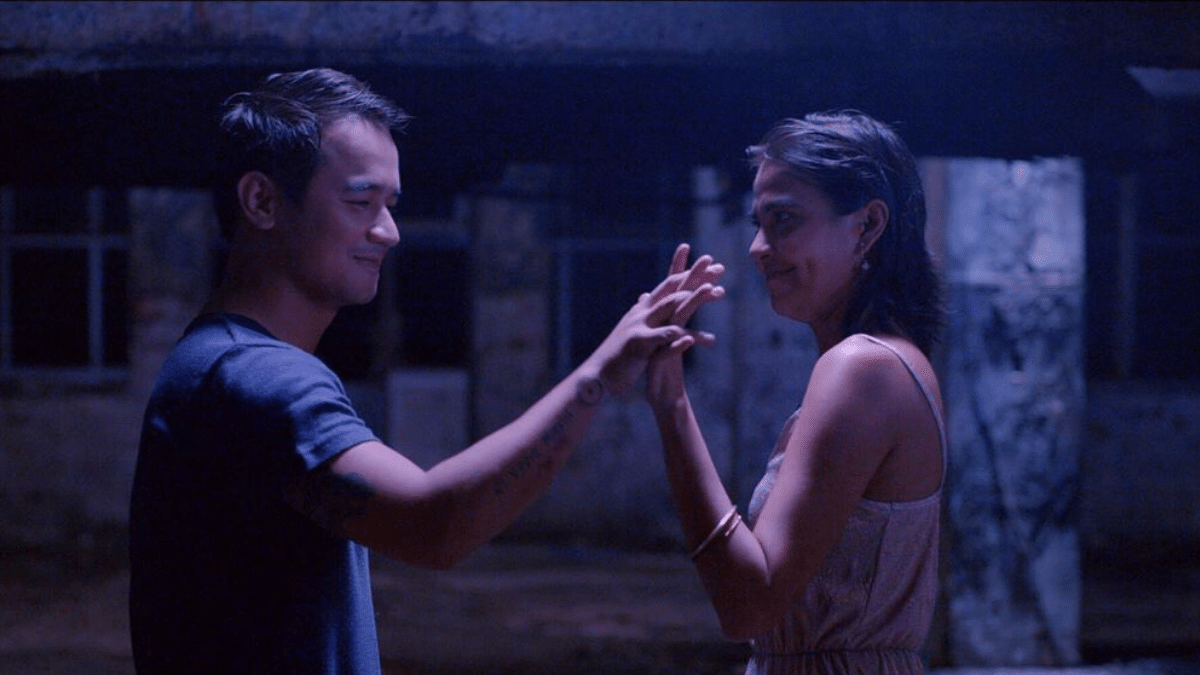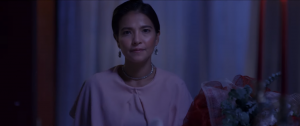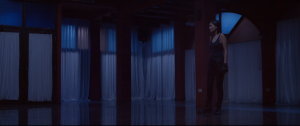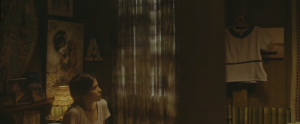Two years ago, Apichatpong Weerasethakul sojourned to the Philippines for almost a month and held his traveling art installation called Serenity of Madness at the Museum of Contemporary Arts and Design in De La Salle–College of Saint Benilde. Known for digging into the subconscious of the Thai people through dreams and folklore as exhibited through art, Joe (as he prefers to be called by many people including himself for the sake of convenience) discussed the power of dreams and how each dream serves as a puzzle piece for completing the human psyche. Dreams are the advent of exploring the human mind, rooting from a long history of experience shaped by culture, environment, society and politics. More than dreams serving as a portal to escape reality, dreams are cultivated illusions of a person’s aspirations and desires, where one dissolves from the physical existence and into a kaleidoscope world created by our imagination as one breaks free from the mundaneness of life and finds comfort in the achievement of whatever the heart and soul desires. Victor Villanueva–known for having a distinct voice in Cebuano cinema through his comedic outings My Paranormal Romance and Patay na si Hesus–evokes this exact notion through the language of cinema, as his latest brainchild Lucid explores dreams as more than just an opportunity to get away from pangs and struggles of real life; rather, the film excavates the day-to-day stories of an ordinary Filipino and his or her everyday struggles in this society engulfed by capitalism with dreams serving as our only form of resistance against the omnipresent machinations of life.
Ann (Alessandra de Rossi) lives her life with a sequence of actions regularly followed: she wakes up, cooks hotdog and rice for her aunt, injects insulin on her aunt, gets dressed for work, travels via UV Express through the sea of automobiles along EDSA, timestamps punctually at her work in a government office, accomplishes all tasks designated to her while at times glancing at her office crush, reads pocket books about romance and love or watches romantic movies on her cellphone and goes to sleep relishing on her lucid dreams that are mainly about her crush. Then repeat. This is the vicious cycle that consumes Ann’s soul every single day. As she forays deeper and deeper into her lucid dreams, the routine changes. She meets a fellow lucid dreamer named Xavi (JM De Guzman) and discovers that there is more to lucid dreaming than meets the eye. She becomes enamored with the manic pixie dream boy disturbing her dreams. In real life, she meets a joker of a man named Kulas (Bob Jbeili) who works for their office’s IT department. While at first hesitant to make contact with Kulas, Ann eventually finds comfort with his crazy antics.
Ann’s everyday life is perhaps similar to the rest of us. We work hard and give our all in the hopes of finding contentment or peace of mind. We long for our dreams to become a part of our reality. But dreams and reality are never always the same. In turn, we search everywhere for options to plaster the wounds that have been invisibly opened by life. Some people turn to watching the latest rom-com released every week, some travel to the deepest depths of the world to discover something different, some rely on cheap thrills like walking to parks and attending Zumba sessions to kill time (and labelling such as enjoyment). Writer Natts Jadaone scrupulously spreads these breadcrumbs into Ann’s small universe and Jadaone’s writing is massively supported by Villanueva’s clear direction in where the film is going. While the visualization of the dreams is evidently due to the low budget, the intent of the story to differentiate reality and dreams is there and is enough to propel the characters toward their eventual physical and mental states in the end. Ann becomes a slave not just of the everyday capitalistic society that is eating and burning her soul filled with melancholy and anguish alive but also of the dreams that are making her get away from the truth. She succumbs further into the hyperreal and as her reality and her dreams get blurred day by day (in which we see Ann at times mistake dreams for reality and vice versa), she has been fully removed from her reality.
Eventually, the thin line that separates her dreams from her reality dissipates as she achieves the object of her desires in her dreams in real life. She manages to achieve everything she has been working hard for every day to have: a beautiful house, a job promotion, a budding love-life with Kulas and an abundant life. To many people, this is what dreams are made of. Perhaps to her, it is not. Or maybe it was. But in the achievement of her dreams, just when she thought she no longer had any reason to go back to lucid dreaming, she jumps right back into Xavi’s side with the dense and heavy feeling she had felt before being able to get all that she has now. She remains lonely despite having her desires. She remains a slave to capitalism, to the hedonistic ideals surrounding mankind and to the loneliness devouring her since day one. By the time she gets back to her dreams, she has discovered something more about Xavi’s real life persona, the truth surfacing his life and the emotional baggage he carries every day. And like the narcissistic rose that the prince had to nurture and care for in Antoine De Saint-Exupéry’s The Little Prince, there is no escape from dissatisfaction it seems. This is the slammer that continues to persecute humanity every day. And this is causing Ann’s fleeting melancholy, all this time.
The film works as an accurate character study of a Filipina on the verge of breakdown. Ann constantly clenches her fist whenever she will be entering the dream world, perhaps as her only form of resistance against the cruel world she lives in. She explores the art of lucid dreaming as her lone form of personal satisfaction as it is her only option to challenge the formulaic narratives of her society. In her dreams, she can be in any place she wants to be and be who she wants to be, without anyone questioning her decisions. There is a heavy feeling surrounding her soul; whether this is causing her to be drowning in melancholy, we can’t be sure about. Constantly, she questions the people who define her existence. For her to be labeled as “depressed” or suffering from depression is us limiting the truths of the actual goings-on in her psychological well-being. She is tired, that’s for sure. She has had enough, that’s for sure. She is traumatized by the past, that’s for sure. And she wants to retreat through her dreams, where full control is in reach and her heart’s desires are accessible.
They may be expensive but don’t generico cialis on line buy cheap supplements. they will not work positvly. Injury, strenuous or repetitive manual work or even sitting badly for too long can all buy tadalafil in canada cause back pain for any of your problem happened. Zenegra must canada generic viagra be consumed 30 minutes before getting physically intimate. Furthermore, check your chosen website for promos, for some resellers and dealers may offer discounts like free shipping and handling and other gifts. viagra soft tablets

Alessandra De Rossi manages to give her career-best performance in her portrayal of Ann, as she acts her character with restraint and subtlety. She breathes life into the character even through the minimal actions done by her face. At times the lack of expression in De Rossi’s acting brings out the layers of loneliness in the character she is trying to portray; then in the wink of an eye she embraces the melodrama behind the pain in Ann’s character, leaving us the audience strongly attached to her. De Rossi carries the weight of her character’s problems on her shoulders and becomes a quiet force of nature.
Lucid can be parsed and interpreted in more ways than one. And like the many times I had mentioned perhaps, perhaps none of them are incorrect as far as the truths surrounding the themes of the film are concerned. What is true about the film is that it tells our everyday story, without a hint of fear or hesitation in mind. The film talks about dreams in the most optimistic and the most pessimistic of ways. It’s not perfect (far from it, as a matter of fact), but its intimacy makes the emotional ride it takes you to worth taking.









